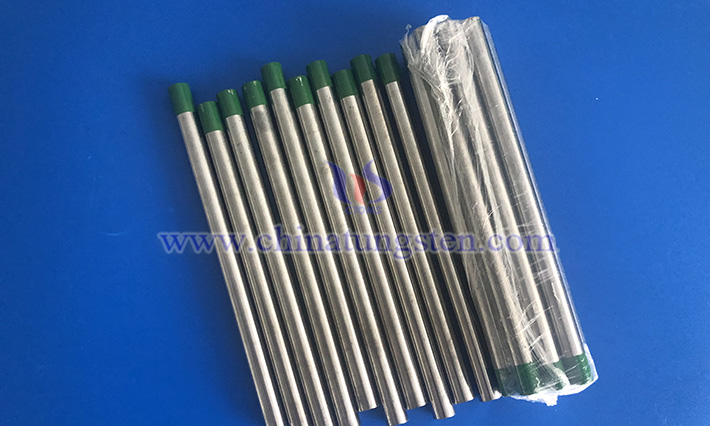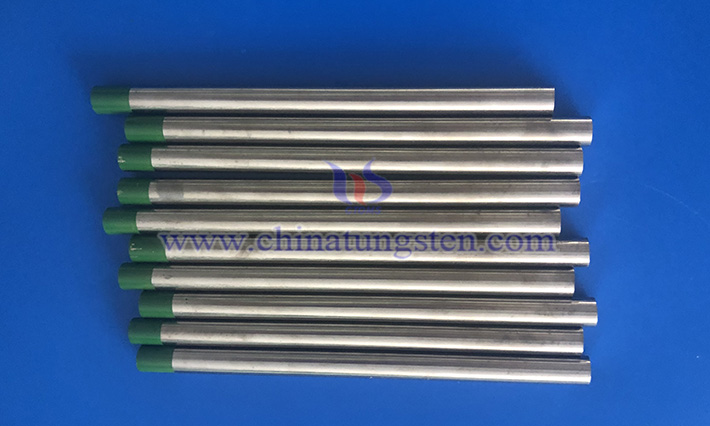The Tungsten Electrode Production Project in Jiande City Is Expected to Begin Operation in August
- Details
- Category: Tungsten's News
- Published on Wednesday, 04 June 2025 14:48
- Written by Xiaoting
- Hits: 292
According to CTIA GROUP LTD, by the end of May 2025, a project in the Datong Town Industrial Functional Zone, Jiande City, Zhejiang Province, for producing 200 tons of tungsten electrode, 200 sets of U-rib welding machine, and 5,000 electrode sharpener annually, reached a key milestone. The main structure has been topped out, marking the start of the interior decoration phase. Concurrently, the procurement of production equipment is underway, with all construction tasks progressing orderly, aiming for production to begin in August.

The project, with a total investment of 110 million yuan, spans over 10 acres. It includes a new 3-story office and auxiliary building and a 1-story manufacturing plant, covering approximately 10,000 square meters. Utilizing advanced construction concepts and introducing leading domestic equipment and processes, the project focuses on creating key functional areas: a 200-ton tungsten electrode production line, a welding laboratory, a 100-set U-rib welding equipment assembly workshop, and a 5,000-unit electrode sharpener assembly workshop.
Tungsten electrodes, made from high-purity tungsten, are enhanced with small amounts of rare earth elements (e.g., cerium, thorium, zirconium) to improve their properties. They are classified into thorium-tungsten, cerium-tungsten, and zirconium-tungsten electrodes, differing in electron emission and erosion resistance.

Tungsten electrodes offer exceptional high-temperature and erosion resistance, with a melting point of 3,422°C, far exceeding temperatures in industrial welding and cutting like argon arc welding. They resist melting during arc discharge, with low erosion rates under high-frequency arcs, extending their lifespan. The addition of rare earth elements lowers the electron work function, enhancing arc stability for automated welding. Their chemical stability and corrosion resistance are also notable, as they do not react with acids or bases at room temperature or with inert gases and base materials in high-temperature arcs, meeting the high-purity welding needs of aerospace.
With these properties, tungsten electrodes are vital across perse applications. In welding and cutting, they serve as non-consumable electrodes with inert gases, producing high-quality, splash-free welds on metals like stainless steel and aluminum alloys. In electronics and semiconductors, they weld wires with minimal thermal impact. In ion implantation, they act as emitters to control semiconductor conductivity, crucial for wafer processing. In medical and high-end manufacturing, their precise arcs enable welding of minimally invasive surgical instruments, with weld strengths exceeding the base material.
- Chinatungsten Online: www.chinatungsten.com
- CTIA GROUP LTD: en.ctia.group
- Tungsten News & Price: www.ctia.com.cn
- Molybdenum News & Price: news.molybdenum.com.cn
- Tel.: 86 592 5129696; Email: sales@chinatungsten.com





 sales@chinatungsten.com
sales@chinatungsten.com